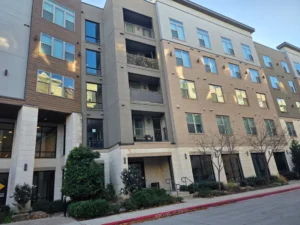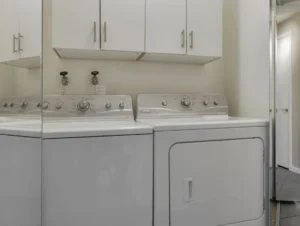5 Mistakes Landlords Make When Approving Tenants
-
Not getting LeaseGuarantee
 A LeaseGuarantee Analyzer is provided in every AAOA tenant screening package. If your tenant qualifies (most do) you can purchase or have your tenant purchase annual coverage for lost rent, damages, or legal fees. This is better than traditional insurance or even a security deposit because it covers you up to $10,000 against common rental losses. Landlords who do not get LeaseGuarantee may later find themselves paying out of pocket for lost rent or damages. In many cases a security deposit is not enough and even if you take a tenant to court it is unlikely that you will collect a judgment from the tenant. Visit https://american-apartment-owners-association.org/leaseguarantee or call (866) 579-2262 for more information about LeaseGuarantee.
A LeaseGuarantee Analyzer is provided in every AAOA tenant screening package. If your tenant qualifies (most do) you can purchase or have your tenant purchase annual coverage for lost rent, damages, or legal fees. This is better than traditional insurance or even a security deposit because it covers you up to $10,000 against common rental losses. Landlords who do not get LeaseGuarantee may later find themselves paying out of pocket for lost rent or damages. In many cases a security deposit is not enough and even if you take a tenant to court it is unlikely that you will collect a judgment from the tenant. Visit https://american-apartment-owners-association.org/leaseguarantee or call (866) 579-2262 for more information about LeaseGuarantee.
-
Relying solely on a credit score to make a decision
A tenant’s credit score is one piece of their story. What’s more important than the score is why the person’s score is low. Did they have a rough period in their life that they are now recovering from? Is it because they simply have not established much credit history because they are young or new to the country? Or is they have a good score, do you think they can afford to pay your rent while also paying off their debt? If you need help reading a credit report you can always call us at (866) 579-2262 to get live support.
-
Not running a criminal background check
Many landlords have a “feeling” about an applicant and maybe think it’s not necessary to run a background check on every tenant, but on other tenants they might. THIS IS A DIRECT VIOLATION OF THE FAIR HOUSING ACT so please make sure to treat every tenant equally. The only reason not to run a criminal background check is if your applicant is under the age of 18 or if you plan to never run a criminal background check on ANY applicant – which we advise against. Your due diligence as a landlord is to first ensure that your community is safe. Should anything happen on your property you’ll want proof that you ran a background check and considered the nature of the crime, if any.
-
Not collecting a social security number
Unfortunately, due to recent identity fraud scandals, landlords and tenants alike are becoming more cautious about sharing their social security number. However, a social security number is still the main piece of data used to identify an individual. Although you could run a background check without one, you can only imagine how many people have the same first and last name and date of birth in the US. Verifying records and getting a credit check becomes much more difficult. Secondly, if your tenant later skips out on rent, having their social security number is a key piece of information you can use to locate them and serve them a court notice or turn them into a collection agency.
-
Not checking references or source of income
Ask your applicants for multiple references including two or more landlords and a current employer. Although they may not be able to speak to their character, they can legally share important facts like whether they paid rent on time or their employment status. Be sure not to discriminate based on source of income such as disability, self-employment, child support, etc, but verify that they have sufficient income to pay for rent. If you don’t do this, you could be renting to someone who simply can’t afford rent or someone who has a history of making late rental payments. Remember just because someone has a good score and no eviction doesn’t mean they aren’t a problem tenant.













 Accessibility
Accessibility